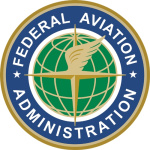- Industry: Government
- Number of terms: 35337
- Number of blossaries: 0
- Company Profile:
An aircraft engine which consists of an air compressor, a combustion section, and a turbine. Thrust is produced by increasing the velocity of the air flowing through the engine.
Industry:Aviation
A method of attitude instrument flying using the instrument that provides the most direct indication of attitude and performance.
Industry:Aviation
A center-seeking force directed inward toward the centre of rotation created by the horizontal component of lift in turning flight.
Industry:Aviation
The average height of the surface of the sea at a particular location for all stages of the tide over a 19-year period.
Industry:Aviation
An air compressor driven by exhaust gases, which increases the pressure of the air going into the engine through the carburetor or fuel injection system.
Industry:Aviation
The section of the airplane that consists of the vertical stabilizer, the horizontal stabilizer, and the associated control surfaces.
Industry:Aviation
A display that provides increased situational awareness to the pilot by replacing the traditional six instruments used for instrument flight with an easy-to-scan display that provides the horizon, airspeed, altitude, vertical speed, trend, trim, and rate of turn among other key relevant indications.
Industry:Aviation
A point along the route or airway segment between two adjacent navigation facilities or waypoints where changeover in navigation guidance should occur.
Industry:Aviation
A fanlike turbojet engine designed to create additional thrust by diverting a secondary airflow around the combustion chamber.
Industry:Aviation
The result of giving too much attention to a particular instrument during the cross-check, instead of relying on a combination of instruments necessary for attitude and performance information.
Industry:Aviation
